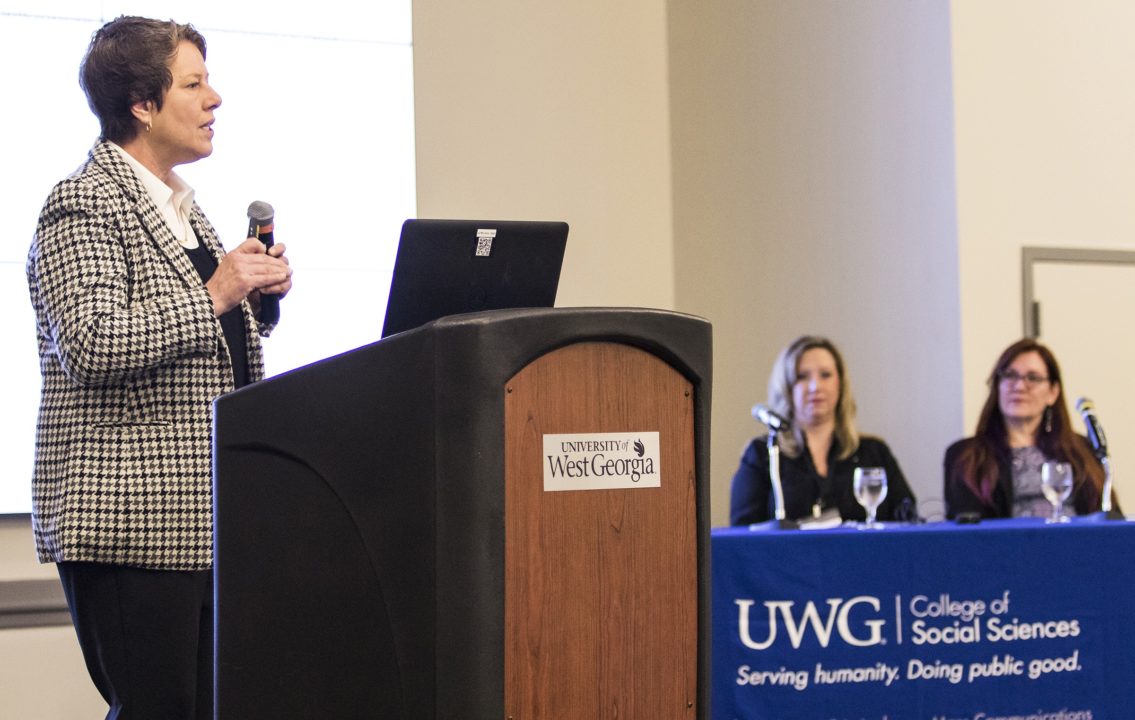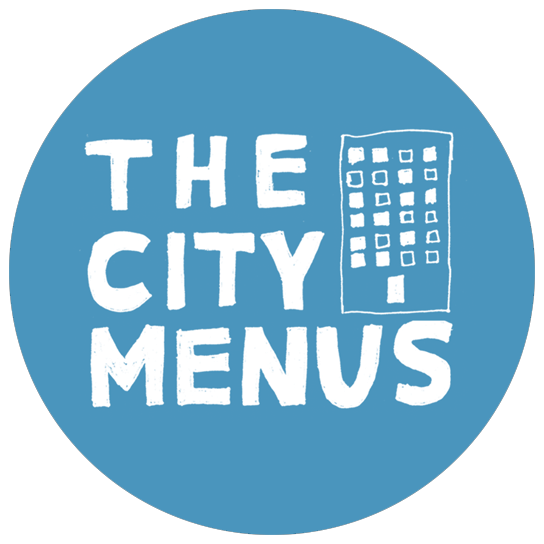
Community stakeholders recently converged on the University of West Georgia campus for the annual State of Community event to discuss barriers that block residents from having access to basic needs – and ways to provide access to them.
“My colleagues and I are painfully aware of food insecurity and homelessness in our community,” said Dr. N. Jane McCandless, founding dean of the College of Social Sciences at UWG, speaking to the gathered group of nonprofit, business and community leaders. “Our goal for this event is to engage in productive conversations to address these critical needs.”
Dr. Winston Tripp, associate professor of sociology and director of the College of Social Sciences Center for Research, provided research findings and trends in access to food, shelter and clothing to the residents of West Georgia – including, Carroll, Haralson, Heard and Troup counties.
Using 2017 data from the U.S. Census Bureau with a focus on trends, Tripp broke down areas on a map of West Georgia, indicating areas of higher poverty and areas where there are larger concentrations of individuals who do not have a high school diploma, are on food assistance programs or do not have access to a vehicle.
Panel presentations examining the effect on the community when some go without basic necessities featured Dr. Kathleen Skott-Myhre, associate professor of psychology; Tiffany Parsons, a lecturer in sociology; and McCandless.
According to social theorists, food is the most basic of human needs – one without which a human cannot prosper and meet other needs.
“This is a reality for 14.8 percent of the people in Carroll County alone,” explained Skott-Myhre. “I need to show you how important access to food is to realizing a person’s future potential.”
A major housing concern in the area is that most of Carroll County residents are paying more in rent than they can afford.
“The United Nations defines housing as a basic human right,” said Parsons. “Housing is something that’s tied to the American dream. Homes are important, and it’s crucial we all talk about this.”
McCandless said clothing is a way of conveying information, as society decides and judges people’s social class, values, and lifestyles based on what they choose to wear.
“Our relationship with clothing is fascinating,” McCandless said. “Adults have told us that in the workplace, clothing influences others’ perceptions of our authority, intelligence and suitability for promotions and raises.”
McCandless said that for children and adolescents, clothing could be seen as being even more important: if a child is wearing clothing perceived to be “unacceptable” by peers, they could be seen as being of a lower class.
“A child’s clothes may determine whether or not they are bullied in school,” McCandless continued. “Bullying only leads to further problems later in their life. Forty-three percent of children in the United States have been bullied because of their clothing.”
The conclusion of all three panelists is that these three areas of concern need major attention in order for area residents to live and thrive.
“Without intervention, this generation will live at a standard of living that is well below that of their parents and grandparents for the rest of their lives,” Parsons concluded. “Our entire community’s stability, vitality and growth are dependent upon it.”

